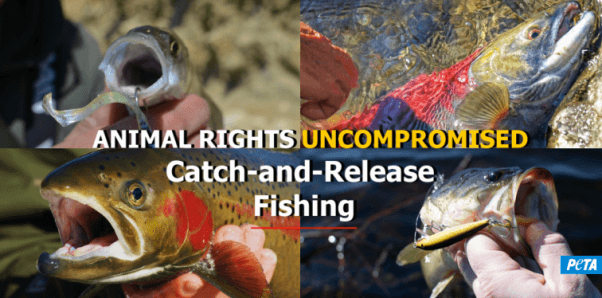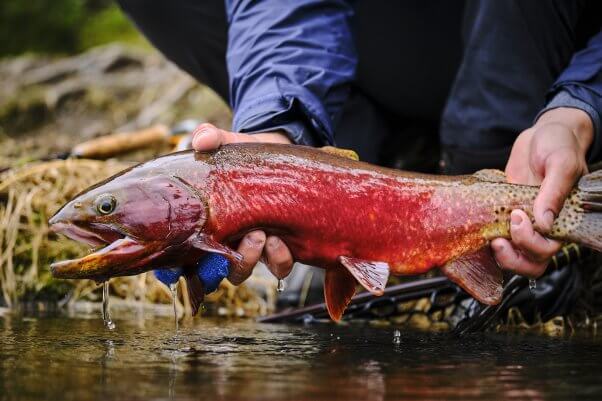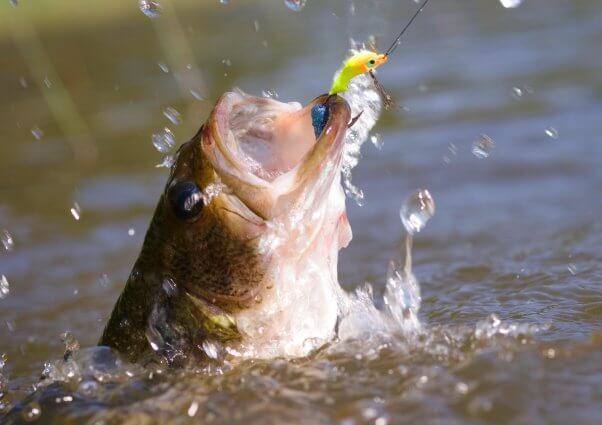Animal Rights Uncompromised: Catch-and-Release Fishing
A lot of misconceptions about catch-and-release fishing are floating around, leaving many folks wondering whether the pastime is bad for fish or not. Keep reading to learn more about it and how you can help fish.
Why Catch-and-Release Fishing Is Bad
Catch-and-release fishing is cruelty disguised as sport. Studies show that fish who are caught and then returned to the water suffer such severe physiological stress that they often die of shock.
Fish often swallow hooks, and anglers may try to retrieve a hook by shoving their fingers or pliers down the fish’s throat, ripping out not just the hook but some of the victim’s throat and guts as well. When fish are handled, the protective coating on their bodies is disturbed. These and other injuries make them easy targets for predators once they’re returned to the water.
Do Fish Feel Pain When They’re Caught?
Fish feel pain because, like all animals, they have nerves. Fish caught on hooks struggle out of fear and physical pain, desperate to breathe. Once they’re hauled out of their environment and into ours, they begin to suffocate, and their gills often collapse. In commercial fishing, their swim bladders can rupture because of the sudden change in pressure.
A wealth of scientific evidence shows that fish are highly intelligent, have great memories, and are socially sophisticated. They’ve been shown to use tools and even communicate with each other using sign language, squeaks, and squeals.
Deep-Water Fishing and Barotrauma
Imagine you’re on an airplane, and suddenly after takeoff, the cabin springs a violent leak. The sudden change in pressure would cause instant physical trauma to several parts of your body, giving you a nosebleed, trouble breathing, burst eardrums, and other health effects.
Deep-water fish, who live 30 or more feet below the surface, face far worse effects when anglers rip them away from their homes in the deep.
When humans pull deep-water fish to the surface, the animals’ eyes bulge; their organs swell to unnatural, painful sizes; and their blood vessels burst. These and other pressure-related injuries are called barotrauma, which can be deadly. Attempts to return the terrified victims to their home depths are often futile due to the extent of their injuries.
Fishing Gear Hurts Wildlife
Fishing gear—whether from angling or other methods—harms fish and other animals. Every year, anglers’ abandoned tackle creates a trail of victims, including millions of birds, turtles, and cats who sustain debilitating injuries due to swallowing fishhooks or become entangled in fishing line. Wildlife rehabilitators say that discarded fishing tackle is one of the greatest threats to aquatic animals.
What You Can Do to Help Fish
Instead of fishing, enjoy other activities in nature that don’t hurt animals, such as hiking, camping, and canoeing. Share this page to tell everyone you know that all fishing, including catch-and-release, injures wildlife.




